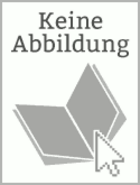Detailansicht

Consensus Organizing
eBook
ISBN/EAN: 9781452222769
Umbreit-Nr.: 4804664
Sprache:
Englisch
Umfang: 272 S.
Format in cm:
Einband:
Keine Angabe
Erschienen am 18.01.2007
Auflage: 1/2007
E-Book
Format: PDF
DRM: Adobe DRM
- Zusatztext
- The first new form of community organizing since Saul Alinsky, this book connects the poor to the rest of society. Written in a logical, teachable, and pragmatic style, Consensus Organizing: Building Communities of Mutual Self Interest is a model of social change for the 21st century. Through real examples, author Mike Eichler illustrates how anyone can practice consensus organizing and help the poor, forgotten, and disempowered. Key Features: Makes the experience of consensus organizing come alive: Many illustrative case studies that are both poignant and humorous show readers how key concepts are applied to real-life situations. The author shares his twenty-five years of experience as a community organizer, including the development of a national effort to train young people as consensus organizers in diverse locations such as Las Vegas, New Orleans, and New York City. Demonstrates how consensus organizing can be applied to a variety of settings: The impact of cultural diversity on the consensus-building process is presented around a number of crucial issues such as public education, housing, economic development, health, and crime. This book shows new methods to bring seemingly opposite people together, forming partnerships never before believed possible. Gives readers an opportunity to learn more about themselves: This text shows a way to help in a style that can bring out everyones talents and commitment to help others. Unlike most texts, this book acknowledges the emotions whether conflicting or inspiring that lie behind a commitment to community organizing. Reflection questions are included to help students prove to themselves that they have the ability to practice consensus organizing. Intended Audience: This is an ideal core textbook for advanced undergraduate and graduate courses such as Community Organizing, Social Problems, Introduction to Urban Planning, Contemporary Urban Issues, Community Health, and Community Based Policing in the fields of Social Work, Sociology, Planning and Public Administration, Public Health, and Criminal Justice. It is also a practical, straight-forward guide for anyone interested in a new method of creating social change.
- Kurztext
- Empowering a community takes more than organizing and mobilizing its people; it takes a simple, yet radical, notion that consensus can be reached by creating mutual self interest between key individuals in the community and players of interest. In Consensus Organizing: Building Communities of Mutual Self Interest, author Mike Eichler shows how even poor and disempowered communities can achieve lasting results by implementing some key consensus organizing strategies. Through personal, lively, and relevant examples, Eichler takes the reader on a road trip through various communities and shows how collectively they were able to reach lasting results by finding key areas where consensus could be reached. Key features: The author shares his twenty-five years of experience as a community organizer, including the development of a national effort to train young people as consensus organizers in diverse locations such as Las Vegas, New Orleans, and New York City. Demonstrates how consensus organizing can be applied to a variety of settings, including public education, housing, economic development, health and crime. Gives readers the opportunity to learn more about themselves: It helps students to see the other side of any situation and understand how common ground can be achieved. It is written in a student-friendly, conversational manner, which will make students feel as if they have taken a journey with the author, struggled with the various communities, won the victories with the disempowered, and had a few laughs along the way. Intended audience: This book can be used as a core textbook for courses in community organizing and as a supplemental volume in various macro social work courses on community practice. It can also be used in departments of social work, urban planning, public administration, and public health.